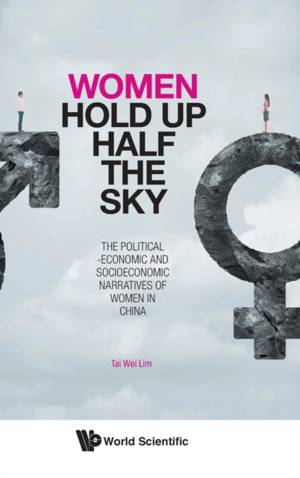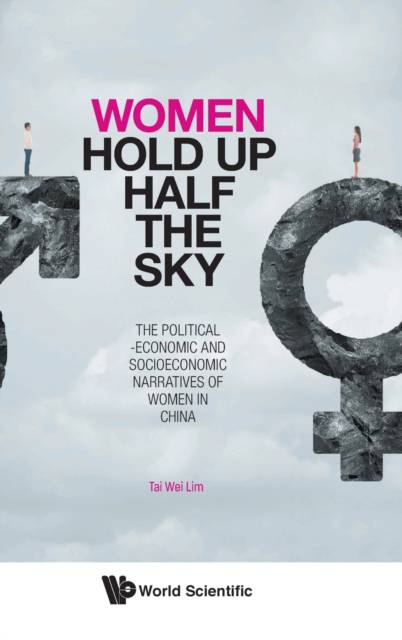
Je cadeautjes zeker op tijd in huis hebben voor de feestdagen? Kom langs in onze winkels en vind het perfecte geschenk!
- Afhalen na 1 uur in een winkel met voorraad
- Gratis thuislevering in België vanaf € 30
- Ruim aanbod met 7 miljoen producten
Je cadeautjes zeker op tijd in huis hebben voor de feestdagen? Kom langs in onze winkels en vind het perfecte geschenk!
- Afhalen na 1 uur in een winkel met voorraad
- Gratis thuislevering in België vanaf € 30
- Ruim aanbod met 7 miljoen producten
Zoeken
Women Hold Up Half the Sky: The Political-Economic and Socioeconomic Narratives of Women in China
Tai Wei Lim
Hardcover | Engels
€ 103,95
+ 207 punten
Omschrijving
This volume will look into some macro factors that have an impact on gender conceptualizations in China. First, China is a highly-centralized state with a one-party political system that is also an authoritarian strongman regime. Thus, policies (including those related to gender) from the center are promulgated centripetally to provinces, cities, towns, villages, and local areas effectively.In terms of policy-making, the Chinese government noted that they have strengthened the Chinese Communist Party's (CCP) guide for women's work, enacted/upgraded rights protection law in the National People's Congress (NPC), actualized mechanisms for women's cause in the Chinese People's Political Conservative Conference (CPPCC), streamlined work systems for effective implementation of national gender equality policies, and augmented the Women's Federation as an intermediary between the Communist Party of China (CPC), the state, and all Chinese women.As productive forces, Chinese women in the socialist era were exemplary models of mothers and career women who treated family life and work as equally important priorities. They were upper middle class to high net worth individuals who showed their successes in juggling both as objects of moral suasion for other Chinese women in state-led publicity. Some of them were touted by the state as ideal modern Chinese women in state media, moral suasion campaigns, and/or propaganda.
Specificaties
Betrokkenen
- Auteur(s):
- Uitgeverij:
Inhoud
- Aantal bladzijden:
- 140
- Taal:
- Engels
Eigenschappen
- Productcode (EAN):
- 9789811226182
- Verschijningsdatum:
- 10/03/2021
- Uitvoering:
- Hardcover
- Formaat:
- Genaaid
- Afmetingen:
- 152 mm x 229 mm
- Gewicht:
- 358 g

Alleen bij Standaard Boekhandel
+ 207 punten op je klantenkaart van Standaard Boekhandel
Beoordelingen
We publiceren alleen reviews die voldoen aan de voorwaarden voor reviews. Bekijk onze voorwaarden voor reviews.









